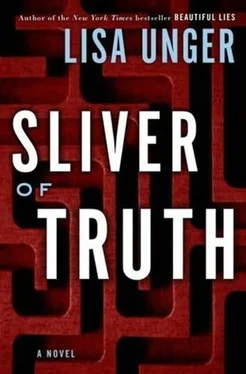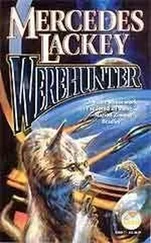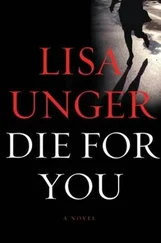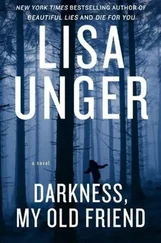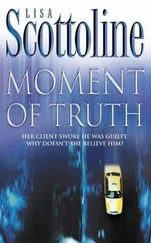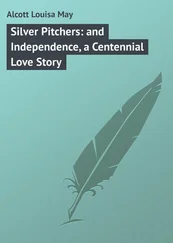It was a hot summer afternoon when I left through the backdoor of my house and entered the woods. We’d built a small fort back in the thick and I climbed inside the rickety thing. It was dim and warm. I felt pleased with myself. After a while of lying there, looking out the crooked window at the leaves sighing in the light wind, I fell asleep. When I woke up later, the sky was a deep purple. It was close to dark. It was the first time in my life I was truly frightened. I looked out the fort “window,” and the woods I usually loved seemed full of monsters and witches, the trees smirked with their malice. I started to cry, curled up in a tight ball.
I don’t think I was like that for long before I heard someone moving through the overgrowth.
“Ridley? Are you out here, honey?”
I was old enough to hear the worry in his voice. But my heart flooded with relief; I cried even harder until I saw Max’s face in the makeshift doorway. He was too big to get inside.
“Ridley, there you are,” he said, sitting down heavily on the ground. I could see that he was sweating, maybe from the humidity, maybe from fear. Maybe both. He put his head in his hands. “Kid,” he said through his fingers, “you have got to stop doing this. You are going to give your uncle Max a heart attack. Your mom and dad are about to call the police.”
He lifted his head to the night and yelled, “I found her!”
I crawled out of the fort and into his lap, let him enfold me in his big arms against his soft belly. He was damp with perspiration but I didn’t care. Through the trees, I could see the glow from the lights of my own house, could hear my parents’ voices drawing closer.
“How did you find me?” I asked him.
He sighed and took my face in his hands. “Ridley, there’s a golden chain from my heart to yours.” He tapped his chest lightly, then mine. “Trust me. I’ll always find you.” I never doubted he was right. And I never hid from my poor parents again.
I LIFTED MY head from the crook of my arm and squinted against the harsh white lights of the interrogation room. I closed my eyes again and leaned my head against the cold wall, tried and failed to clear my mind and relax.
Agent Grace walked in shortly thereafter and offered me his hand, pulled me up from the floor with impressive strength.
“Starting to feel at home here?” he asked. There was something odd in his voice. Was it compassion? For someone who was completely innocent of wrongdoing, I’d spent more time with the FBI than Jeffrey Dahmer had. Or so I imagined, in my self-aggrandizing way. I gave him a short, tight smile, then kept my eyes on the eight-by-ten envelope he had in his other hand. We sat across from each other. He straddled his chair as if he was mounting a horse. Without a word, he opened the envelope and took out three eight-by-ten photographs and spread them out before me.
The first was a photo of me in front of Notre-Dame in Paris. I was eating a crepe filled with Nutella and bananas, gazing up at the cathedral. I wore my leather coat and a beret I had bought on the street just to be a dork. Hazelnut chocolate dripped down my chin. Jake had taken the candid. I think to the casual observer I would have looked silly and happy. But I wasn’t. I remember waking up next to Jake that morning in our posh hotel room with the yellow morning sun beaming in. I looked at him as he slept and thought, I’ve been with this man for a year. He seems more like a stranger to me now than when I was first falling in love with him, when there were so many secrets and lies between us. How is it possible to know someone less intimately the more time you spend with him? The thought had filled me with sadness. He woke up as I stared at him and we made a slow, desperate kind of love to each other, both wanting so badly the connection we’d once shared. I carried the sadness of that lovemaking with me all day.
The next photo was a shot of me and Jake on the Great Lawn in Central Park. The grass looked a bright and artificial green and the skyscape rose up over the tall trees painted gold, orange, and red in the changing season. We’d asked a young woman strolling by to take a picture of us on our blue picnic blanket and cuddled in close. She got only our heads near the bottom of the frame and everything irrelevant behind and above us. It had been a good day. In the photo I noticed that our smiles looked forced and fake. But they weren’t. At least mine wasn’t. I felt hopeful for us, I remember, like a terminally ill patient who thinks a brief cessation of symptoms heralds a miraculous recovery.
The final photograph before me was a snapshot from the miserable Sunday we’d spent with my parents. We went to the River Café in Brooklyn for lunch and then on to the Botanic Garden. This used to be one of my favorites dates with my father when I was younger. Arranging this get-together was my pathetic and desperate attempt to pretend we could act like a family. Well, we did act like a family, a hateful and unhappy one. Ace, who was also invited, didn’t show and didn’t call. My mother took an attitude of stoic endurance, issuing the occasional passive-aggressive comment under her breath. My father and I chattered on like idiots, mirroring each other in our efforts to keep the faltering conversation flowing. Jake was silent and sullen. We shared an awkward meal. Then, unable to admit defeat, we proceeded to the Botanic Garden. My father used my camera to take a photo of me, my mother, and Jake. I put my arm around my mother’s shoulders and smiled. She turned up the corners of her mouth reluctantly, but I swear she shrunk from me. Jake stood near us but just slightly apart. He looked distracted, seemed to have gazed off in the last second before the picture was snapped. We looked like a group of strangers, uncomfortable and forced together.
A powerful sadness and embarrassment washed over me. I looked up at Agent Grace with what I hoped was barely concealed hostility.
“It’s not a crime to have a shitty relationship with your family, is it? Or to document your sad attempts to save your failing love affair?”
I leaned away, looked at the wall over his head. I didn’t want to look at his face.
“No, Ms. Jones, it isn’t,” he said softly. “Can I call you Ridley?”
“No,” I said nastily. “You can’t.”
I thought I saw a smile tug at the corners of his mouth, as if he found me amusing. I wondered how much trouble you could get in for slapping a federal agent.
“Ms. Jones,” he said, “what interests us about these photographs is not the subjects, it’s the background. Take another look.”
I glanced at each picture and saw nothing unusual. I shrugged at him and shook my head. He kept his eyes on me, nodded again toward the photos. “Look closely.”
I looked again. Still nothing.
“Why don’t you just cut the crap,” I suggested, “and tell me what you see.”
He took a black Sharpie from his lapel pocket and circled the figure of a man behind us at the Botanic Garden. He was more like the specter of a man, tall and thin. His face was paper white, little more than a ghostly blur. He wore a long black coat, a dark hat. He leaned on a cane. He seemed to be looking in my direction.
Agent Grace circled another figure behind us in Central Park. Same coat, same cane; this time the man in the picture wore sunglasses. The figure in the photograph was so far away it could have been anyone.
He took the Sharpie again and marked another man in the doorway of Notre-Dame. This time he was caught in profile, more clearly, closer. Something about the shape of his brow, the ridge of his nose caused me to lean in. Something about the slope of his shoulder made my heart flutter.
“No,” I said, shaking my head.
“What?” he asked, raising his eyebrows. Those eyes of his were weird, at once sleepy and searing.
Читать дальше
